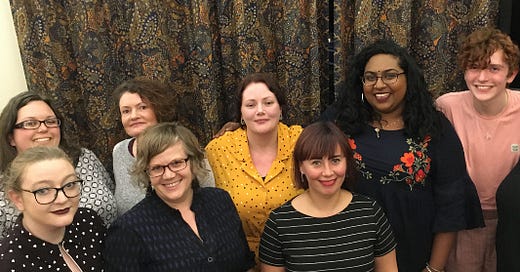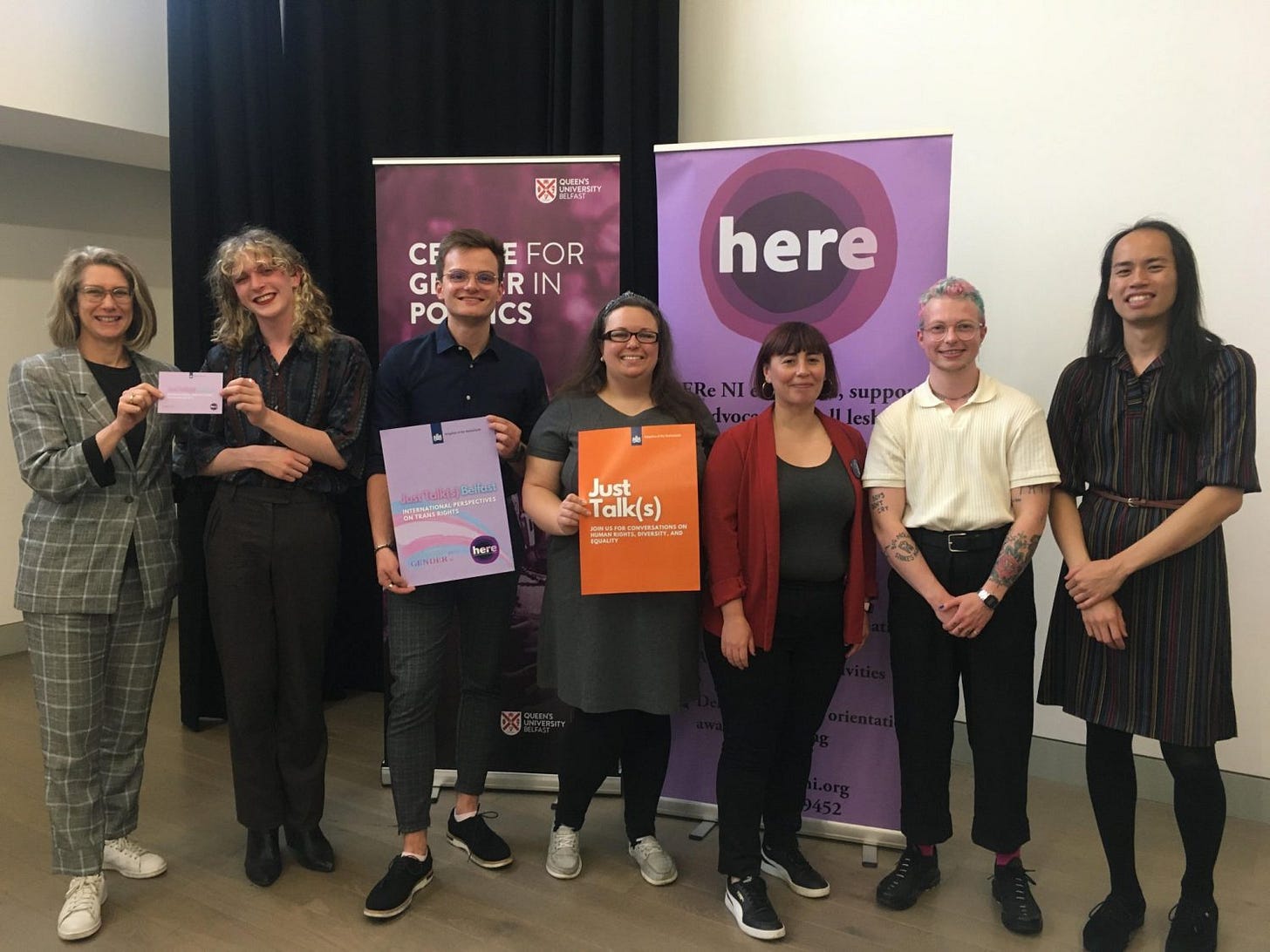Centre for Gender in Politics Co-Founder Jamie J. Hagen takes on new role at University of Manchester
Hagen will continue as Chair of the Centre's External Board
It is with a mixture of emotions that I write to say I am leaving my post at Queen’s University Belfast and have joined the University of Manchester as a Lecturer in Global Politics. While I’ll no longer be co-directing the Centre, I’ll now take on a new role as Chair of the External Board. In this role I look forward to continuing ongoing international queer and feminist collaborations while fostering new ones.
These past five years in Belfast, working with Maria-Adriana Deiana and on the Centre for Gender in Politics has been a gift. As I transition into this new role, I’d like to briefly reflect on some memorable aspects of this work since we founded the Centre together shortly after both starting our permanent posts at Queen’s.
Almost immediately, Maria and I began brainstorming how we could bring together feminists committed to working on peace and security in Northern Ireland. We wanted to find ways to engage with students while also celebrating and supporting the vibrant civil society sector with which Maria already had longstanding relationships. With support from the School of History, Anthropology, Philosophy and Politics, we were able to bring these ideas to life.
As someone new to Belfast and to an academic job, the Centre provided a home for me to connect research and policy in practice. Our launch event in November 2019 showed me just what a powerhouse force of feminists we would be working with in Northern Ireland.
For the next couple of years during the pandemic we continued to have virtual events, and began a research project considering the politics of crisis which Maria, Danielle Roberts and I wrote about in an article in the Journal of Gender Studies in 2022. That same year Danielle Roberts of HERe NI and Alexa Moore of Transgender NI were both part of our event ‘International Perspectives on Trans Rights and Policy’ which was organized in collaboration with HERe NI and the Embassy of the Kingdom of the Netherlands in the UK.
The following year the Centre hosted the launch of the Queering Women, Peace and Security: A Practice Based Toolkit co-developed with me, and collaborators Valentina Parra, Laura Beltrán, María Susana Peralta Ramón from Colombia Diversa and Anupmama Ranawana and Nathalie Mercier from Christian Aid. This public event was then followed by a closed two-day workshop resulting in a Queer Feminist Analytical Framework co-hosted by Chitra Nagarajan. The Framework was part of Queering Peace and Security Policy Brief Series which includes policy briefs that consider topics like queering youth, peace and security and best-practices in queer feminist collaboration in WPS work. The toolkit and the policy briefs illustrate the ongoing work by LGBTQ+ organizations in peace and security, as well as fruitful ways forward to improve engagement with queer lesbian, bisexual and transgender women while doing this work.
It was also through the Centre that I was able to co-host events in London and NYC, including several Conversation Cafes collaborating with a wide variety of organizations including the Global Network of Women Peacebuilders, Colombia Diversa, Outright International and the Canadian Coalition for Youth Peace and Security to name just a few. These collaborations also included several events with Dean Cooper-Cunningham and the University of Sheffield culminating in the publication of ‘Queering peace and security: recommendations to the United Nations Independent Expert on Sexual Orientation and Gender Identity.’ These recommendations (ENG/ESP) were then shared with the new UN Independent Expert on sexual orientation and gender identity Graeme Reid in early 2024.



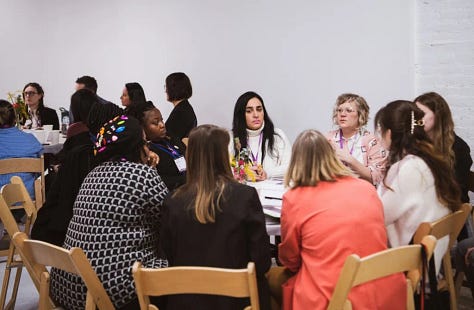
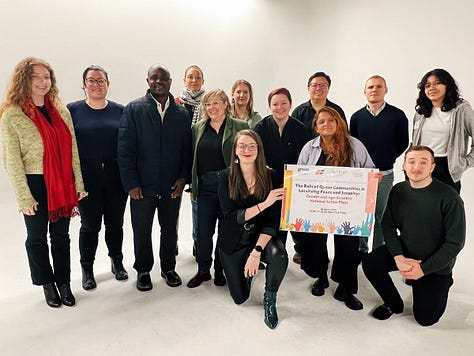
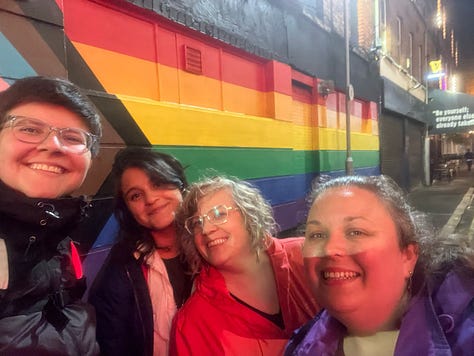

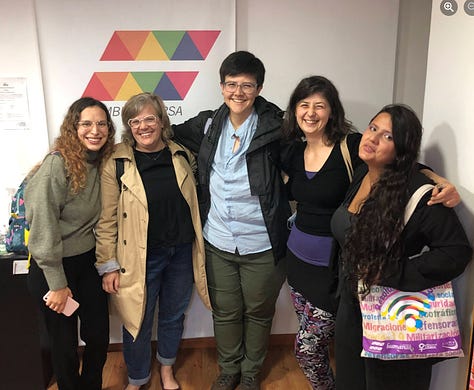

My work with the Centre has also presented a great way to get to know more colleagues across the University. I was most excited to be able to organize writing retreats to the River Mill and a Writing Retreat Workshop with Rowena Murray. The Centre has also provided a wonderful opportunity to co-host events at Queen’s with other colleagues such as The Importance of BDS for Decolonial Feminist Peace in Palestine in March organized by Marsha Henry of the Mitchell Institute.
Here I have reflected on only a fraction of the research and more than 37 events including book talks, workshops, trainings, walking tours and movie screenings we have brought to life through the Centre over the past five years. Beyond all of this, working with Maria as founding co-director of the Centre for Gender in Politics has grounded me through many challenging moments as a feminist killjoy in the UK academy. Grateful for whatever future opportunities allow us to continue collaborating across our feminist friendship, guided by Cynthia Enloe’s line we share on our Centre’s coffee mug: ‘The personal is political, is international.’


